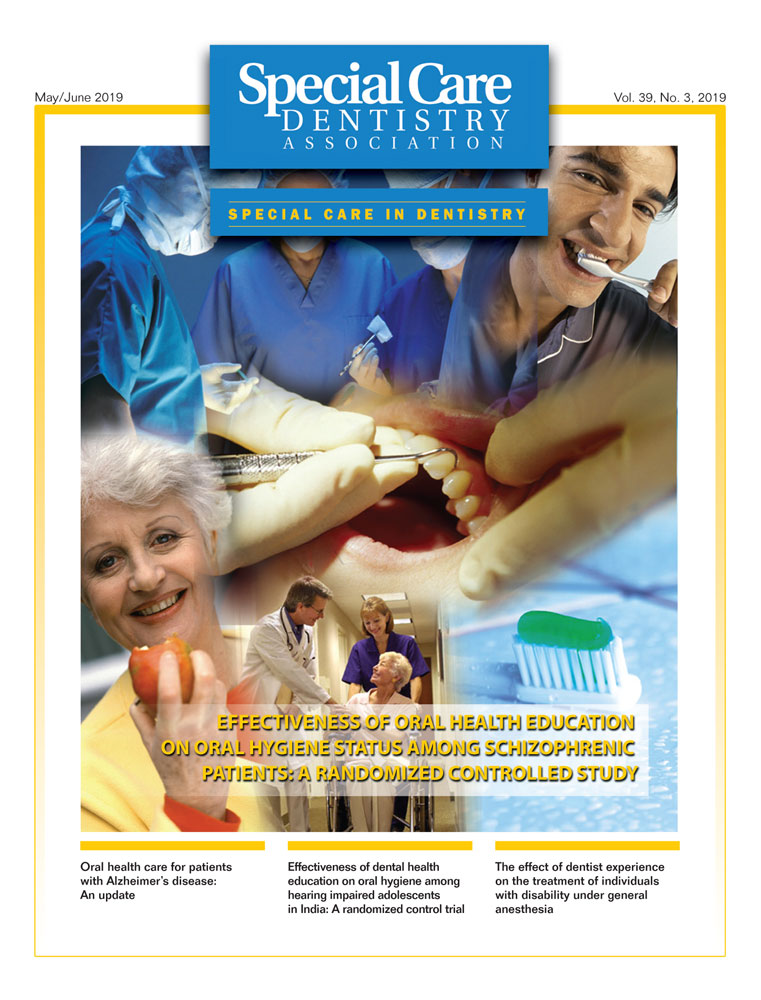Characterization of oral health in a Portuguese population with mild intellectual disability
Abstract
Aims
This study aims to characterize the hygiene habits, the self-perception of the need for treatment and the oral condition of a population with a disability.
Methods and Results
This research is part of an observational, cross-sectional epidemiological study on oral health and quality of life of people with mild intellectual disabilities living in (or attending) institutions of the Central Region of Portugal that were affiliated with HUMANITAS (Portuguese Federation for Mental Disability) in 2016. A sociodemographic and oral health questionnaire, applied on the form of an interview to 240 individuals aged between 18 and 64 years, was used. Statistical analyses were performed using SPSS version 22.0. It was verified that 32.9% of the individuals had less than 20 teeth. Only 15% of all individuals used removable prosthesis. About 21% didn't do oral hygiene daily. Only 28.4% of the sample visited the dentist in the last 6 months. Note that 75.2% of the sample stated their need for dental treatment and less than half (37.4%) described their oral condition as good or superior.
Conclusion
Dental care among adults with intellectual disability is one of the most unattended health needs. Evidence suggests that inadequate oral health habits are more prevalent in the studied population than in the Portuguese population.
CONFLICT OF INTEREST
The authors have no conflicts of interest to disclose.




